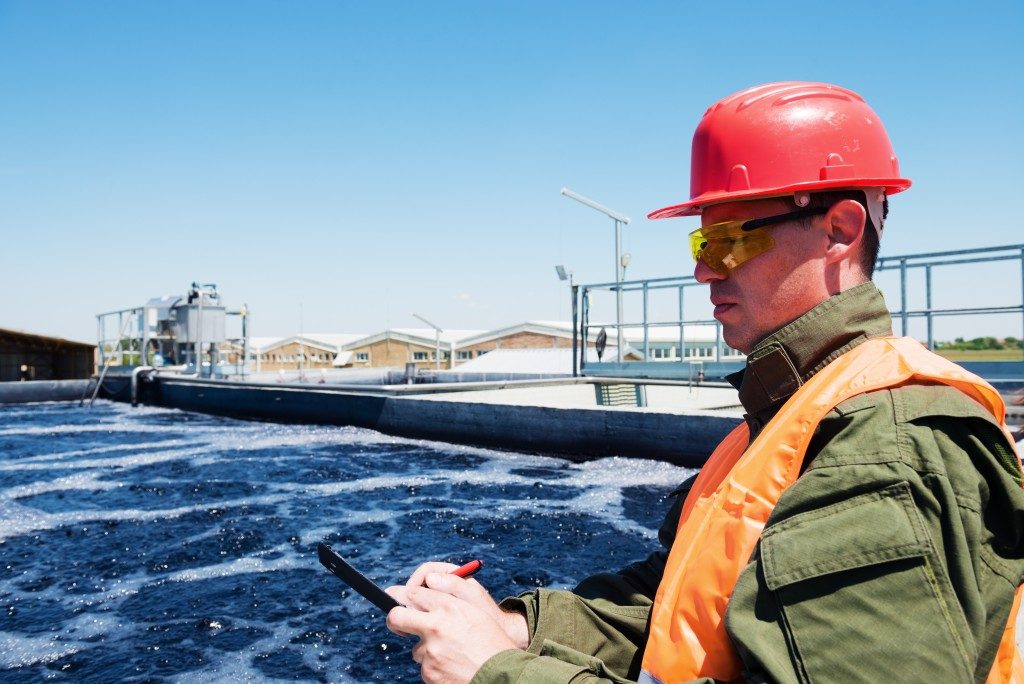
There was a time when the solution to pollution was dilution. Small amounts of sewage would be discharged into flowing water bodies, and the stream would purify itself. Communities with high populations produced more waste, and so dilution was failing, necessitating water purification and treatment. Soon, the centralized treatment plant was constructed, and sewage would be taken through processes to remove the majority of pollutants.
Over time, new sewage collection and home grey water treatment systems have developed that separate stormwater from domestic wastewater. Treatment plants no longer have to be overloaded in wet weather. Additionally, public health and environmental health concerns have led to the development of even more complex systems that need energy and other resources to operate and yield much less pollution. Wastewater is separated into the following types:
Blackwater
This is the kind of wastewater from dishwashers, kitchen sinks, and toilet fixtures. This water contains a lot of things including wipes, toilet paper, urine, body cleaning liquids, and poop. It is also often contaminated with chemicals and pathogenic particulate matter. Sometimes blackwater is called sewage. Treating this kind of wastewater is difficult.
Blackwater recycling systems have to allow the water to settle first to let a bacteria colony eat at the waste. The settled water goes into a different tank divided into irrigation, aeration, and sludge. During aeration, the idea is to inject air at intervals to allow bacteria to feed on sludge. The resulting solution is sent to the irrigation chamber where it is clarified and chlorinated. Such water may be used in gardens, for example.
Greywater

Wastewater collected from non-food and non-toilet fixtures like from bathtubs, laundry machines, bathroom sinks, and spas is classified as greywater. Simply put, this water is sewage without urine or poop. Greywater will be treated differently than blackwater and could become re-usable. Since greywater does not have the fecal matter, it breaks down faster, and so the treatment processes are fast.
The exact contents of grey water, however, will influence the kinds of processes it needs to go through. If one needs to reuse grey water, they need to regulate what they send down the drain. Keeping household chemicals at a minimum can make the treatment process comfortable. It also helps to use biodegradable detergents and soaps.
Yellow water
If urine is collected from particular channels so that it has no greywater or blackwater, it is referred to as yellow water. Some establishments purify yellow water. However, in most homes and corporate buildings, it is an extra expense to install systems for collecting yellow water.
There is no escaping the types of wastewater. However, how they are handled can make a world of difference. People want to enjoy their outdoor environment as they do their home exterior. Exposure to different types of wastewater even unknowingly can cause diseases. To enjoy the environment safely, one must consider how the waste from their sewage and non-sewage disposal systems is treated.

